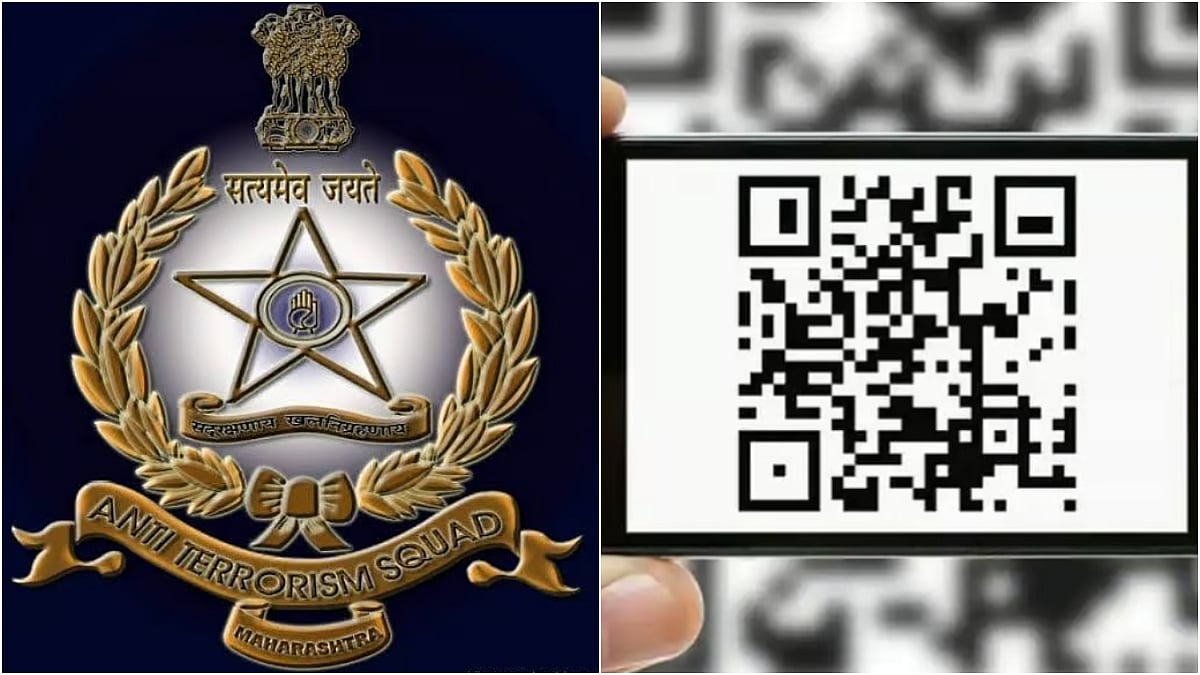Maharashtra ATS investigates QR code-linked mosque donations over suspicious transactions | Representational Image
Mumbai: The Maharashtra Anti-Terrorism Squad (ATS) has launched an investigation into the suspicious use of QR codes for fund collection in mosques across Mumbai, Thane, Bhiwandi, Nashik, and parts of Karnataka. Officials suspect that similar fundraising patterns could exist in other states as well. Agencies suspect that these codes were being used for unauthorized financial transactions, raising concerns over potential misappropriation of funds.
The ATS investigation into suspicious funding revealed a concerning pattern of QR code-based fund collections at mosques during Friday namaz. According to officials,these QR codes were found pasted on mosque walls and circulated among worshippers. Initial financial investigations reveal that donations, ranging from small to significant amounts, were processed through third-party digital payment platforms and deposited into mosque trust accounts. However, a deeper probe suggests that funds were later diverted to unregistered and unauthorized organizations, raising concerns about their intended use.
The ATS has intensified efforts to trace the fund flow and scrutinize the bank accounts associated with these transactions. Officials are also analyzing whether the collected funds were being used for any illicit activities, including funding organizations that operate outside the legal framework.
According to sources, the ATS has approached the charity commissioner regarding the involvement of unregistered trusts and organizations in the QR code fund collection sharing the finding that these unregistered trusts and organisations are legally required to register under the Societies Act or the Trust Act, both governed by the charity commissioner. The investigation has brought alarming details to light—massive funds collected through QR codes in mosques were mysteriously diverted. Initially, these donations were deposited into mosque trust accounts, but later, they were funneled into unregistered and potentially illegal entities. ATS suspects this was a deliberate scheme to attempt to dodge audits and financial scrutiny. This revelation has triggered fears of funds being misused for undisclosed activities, further deepening concerns over transparency and accountability.
Moreover, the ATS informed the charity commissioner that approximately 625 organizations in Maharashtra are registered under the Foreign Contribution (Regulation) Act (FCRA)—most of them educational or social bodies—adding another layer of complexity to the investigation.
Officials also suspect that members of mosque management committees may be involved in embezzlement, unauthorized expenditures, and biased distribution of financial aid. The lack of a centralized regulatory body to oversee mosque donations has made fund tracking challenging and raised concerns about potential misuse for suspicious financial activities.
A senior officer linked to the investigation, speaking on condition of anonymity, stated: “The presence of these QR codes across multiple mosques in different cities is concerning. Our primary focus is to identify the fund flow and ensure that charitable donations are not being misused for unlawful purposes.”
Sources within Central intelligence apparatus have expressed concerns about the emerging trend of QR code-based fundraising. Ongoing investigations into recent terror financing have uncovered suspicious transactions linked to multiple unregistered organizations, some of which have ties to extremist networks.

In its 2023 report on terror organizations linked to illicit funding, the Financial Action Task Force (FATF) highlighted findings from Indian agencies that exposed a sophisticated fundraising network used by a violent extremist group. Without naming the organization, Indian authorities revealed that funds were systematically collected through both offline and online mechanisms, including the widespread circulation of QR codes and bank account details.
These QR codes, strategically placed in mosques and public spaces, facilitated seamless digital transactions, allowing donors to contribute without scrutiny. Investigators uncovered over 3,000 bank accounts and informal value transfer systems used to channel both domestic and international transactions, complicating efforts to trace the money trail. The funds were ultimately directed toward procuring arms, ammunition, and training cadres, while a portion was invested in businesses and real estate to create a sustained financial pipeline for terrorist activities.
Senior official from the security agency Without naming specific mosque details, stated that several trusts had been questioned regarding the placement of QR codes confirmed that the QR codes were placed in areas receiving significant donations under Islamic financial principles such as Zakat, Sadaqah, Waqf, and Fitrah.
One mosque trustee, during the questioning, explained that: “Ahead of Ramzan, imams, mosque committees, and local religious leaders from rural areas and small towns across various states often turn to larger city mosques for financial support. Many of these smaller mosques, struggling with deteriorating infrastructure and limited resources, face significant challenges in maintaining essential facilities for worshippers. To bridge this gap, well-established city mosques extend economic assistance through donations following Islamic financial principles”
Although such donations play a vital role in the operation of religious institutions, the ATS is investigating whether funds raised for charitable purposes were diverted to illegal entities operating outside the legal framework. The ATS is conducting a thorough examination of financial records and digital payment trails to determine the extent of fund misappropriation. The investigating agency suspects that funds collected through these illegal channels may have been used for purposes beyond religious or charitable activities.
Concerns have also emerged over the misappropriation of Waqf Board funds. Despite the Waqf Act mandating audits, many mosque trusts escape strict financial scrutiny, making it easier for funds to be misused. Investigators are now examining whether these funds were being double-financed or misdirected for unauthorized purposes. The ATS continues its probe into the financial records of mosque trusts and their digital transaction patterns, ensuring that charitable donations remain transparent and do not fall into the wrong hands.
